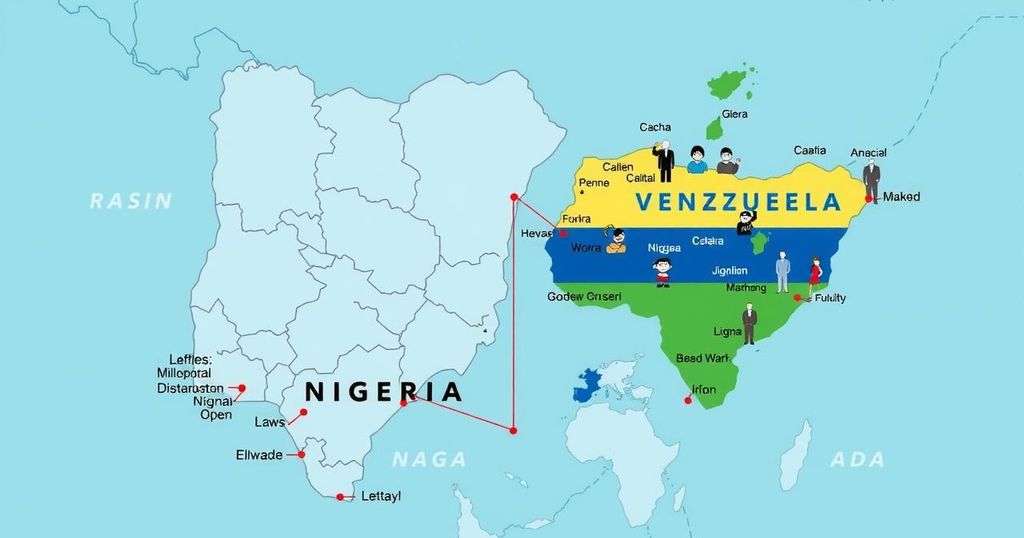- Nigeria’s foreign minister rejects U.S. pressure on Venezuelan deportees.
- Minister Tuggar quotes rapper Flava Flav in his remarks.
- Trump administration faces resistance on deportation agreements.
Nigeria Declares Firm Rejection of U.S. Deportation Proposal
Nigeria’s Foreign Minister Yusuf Tuggar has issued a firm rejection to the United States’ mounting pressure aimed at persuading Nigeria to accept Venezuelans who have been deported from the U.S., including some with questionable criminal records. In a televised interview, Tuggar described such requests as ‘unfair’ and ‘unrealistic’ for Nigeria to comply with, given that the country is already grappling with internal issues. With a population over 230 million, the challenges Nigeria faces are significant, and the minister stressed that they simply cannot add to their burdens by accepting deportees from another country.
The Implications of Deportation on U.S.-Africa Relations
Tuggar didn’t shy away from illustrating his stance with a quote from the rapper Flava Flav, emphasizing the point that Nigeria has a lot of its own issues to address. The interview comes in light of reports that the Trump administration has been pushing several African countries to agree to accept deportees. Nigeria, being both populous and strategically significant, stands out as the first nation to vocally reject this controversial proposal. This tug-of-war over deportation policy points to a larger trend in U.S. immigration, where enforcement approaches are now involving international negotiations and policies.
Global Resistance to U.S. Deportation Tactics Is Growing
Responses from other countries echo Nigeria’s sentiments. Liberia’s Foreign Minister Sara Beysolow Nyanti affirmed that Liberia had not engaged in talks with the U.S. about accepting deported Venezuelans. Critics in the U.S. have labeled the administration’s move as ‘migrant dumping,’ further complicating the diplomatic landscape. U.S. leaders assert that the so-called safe third country agreements are vital for curbing issues like visa overstays, yet many nations seem resistant to accepting what they perceive as unwanted deportees, all while the situation continues to escalate at home in Venezuela, which has led to significant migration pressures.
Nigeria has taken a strong stance against U.S. pressure to accept deported Venezuelans, indicating concerns about their own national challenges. Other nations like Liberia share similar views and are not engaging in negotiations regarding deportees. This scenario highlights the growing complexity of U.S. immigration policy as it intersects with international diplomacy, raising questions about the fair treatment of migrants.






